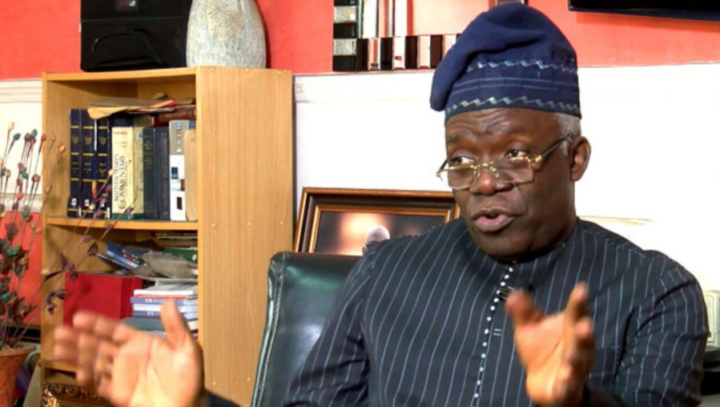Prominent human rights lawyer and Senior Advocate of Nigeria, Femi Falana, recently unveiled a startling revelation regarding the Central Bank of Nigeria’s (CBN) currency redesign policy.
In what has become a topic of significant concern and public discourse, Mr. Falana disclosed that the CBN, under the leadership of former Governor Godwin Emefiele, had collected an astonishing sum of approximately N3.2 trillion from various sources and customers but only printed a fraction, totaling N402 billion, during the implementation of its naira redesign policy. This revelation has shed light on a contentious and distressing chapter in Nigeria’s financial history.
The naira redesign policy, which aimed to phase out the old N200, N500, and N100 notes and replace them with new ones, had a profound impact on the lives of Nigerians. Mr. Falana’s statement came to the forefront during his appearance on the popular Channels Television programme, Sunrise Daily. During this broadcast, he criticized the former CBN Governor and raised serious questions about the policy’s execution, especially in relation to the scarcity of the naira currency at the time and the adverse effects it had on businesses and households across the nation.

Mr. Falana’s actions were not limited to verbal criticism; he took legal measures to address the distressing aftermath of the naira redesign policy. In a commendable display of his commitment to justice and transparency, he invoked the Freedom of Information Act. Under this act, he submitted a formal request to the Central Bank, seeking full disclosure of the exact amount of money printed during the naira redesign exercise.
Explaining the motivation behind his actions, Mr. Falana shared, “I had to write to the central bank under the Freedom of Information Act to know how much was printed. To my utter dismay, the central bank collected about 3.2 trillion from customers and others, yet the bank only printed 402 billion naira.” These figures, presented in stark contrast, have understandably raised significant concerns among the public, particularly in terms of accountability and transparency within the financial institutions entrusted with safeguarding the country’s economic stability.
Mr. Falana’s emphasis on the urgency of employing legal tools like the Freedom of Information Act to combat corruption and secure crucial information to safeguard the welfare of the Nigerian people cannot be overstated. In a nation where corruption remains a pervasive issue, the law serves as a powerful weapon to hold institutions and individuals accountable. By utilizing the law, as Mr. Falana advocates, concerned citizens can confront corruption head-on and gather essential information necessary to protect the interests of the Nigerian populace.
His call to “take advantage of the law and use the law to enforce corruption and get information to defend our people” resonates with the broader effort to promote transparency and accountability in the Nigerian financial sector. In an era where access to accurate information is essential for good governance, Mr. Falana’s actions exemplify the power of legal mechanisms to unveil concealed truths and protect the rights and interests of the public.
This revelation regarding the massive disparity between the amount collected by the CBN and the actual currency printed during the naira redesign policy is poised to fuel further discussions on the policy’s implementation and its consequences. As the legal actions initiated by Mr. Falana continue to unfold, the hope for increased transparency and accountability within financial institutions, especially the CBN, is reignited. In doing so, Mr. Falana’s efforts have drawn attention to the necessity of upholding the principles of the rule of law and good governance to ensure that the interests and well-being of the Nigerian people are safeguarded in all financial matters. The impact of these revelations is expected to reverberate throughout the country, influencing the public discourse on financial accountability and governance.
Support InfoStride News' Credible Journalism: Only credible journalism can guarantee a fair, accountable and transparent society, including democracy and government. It involves a lot of efforts and money. We need your support. Click here to Donate
